#gonzalo castro
Text

Marcos Castro (Mexican, 1981) - Apocalyptic Nostalgias #6 (in collaboration with Gonzalo Fuenmayor) (2022)
95 notes
·
View notes
Video
youtube
Bird Box Barcelona Announcement *Graphic*
Bird Box Barcelona is the first of a series of local-language spinoffs of 2018′s Bird Box. In Bird Box a wave of unexplained suicides are eventually linked to ghostly creatures that cause those who see them to take their lives. The 2018 film was based on the novel by Josh Malerman.
Bird Box Barcelona stars Mario Casas, Georgina Campbell, Diego Calva, Alejandra Howard, Naila Schuberth, Patick Criado, Celia Freijeiro, Lolo Dueñas, Gonzalo de Castro, Michelle Jenner, and Leonardo Sbaraglia. The film is written and directed by Alex Pastor and David Pastor.
Bird Box Barcelona hits Netflix on July 14, 2023.
#bird box#bird box barcelona#mario casas#georgina campbell#diego calva#alejandra howard#naila schuberth#patrick criado#celia freijeiro#lola duenas#gonzalo de castro#michelle jenner#leonardo sbaraglia#alex pastor#david pastor#josh malerman#netflix#TGCLiz
2 notes
·
View notes
Text

#100 Tratamos demasiado bien a las mujeres (2024)
"En 1944, mientras el mundo lucha por derrotar al fascismo y al nazismo, en España se ha instaurado un régimen católico militar.
En octubre de ese año, miles de guerrilleros antifascistas, muchos llegados de Europa, intentan reconquistar el Valle de Arán. Es la acción militar más audaz desde la Guerra Civil... Pero la operación acaba siendo un absoluto fiasco.
Los supervivientes, perdidos y acosados, huyen desesperadamente de nuevo hacia Francia."


Reme (Carmen Machi) vive con su hermano Antonio (Luis Tosar), pero ambos son muy diferentes, ella apoya al bando de la derecha y él se decanta más por ideas de izquierdas, esto crea roces y disputas entre ambos. Reme va a recoger su vestido de novia al servicio postal de su pueblo. Cuando entra una guerrilla de Maquis en el servicio postal justo cuando están dentro Reme y un par de guardia Civiles.

"Los Maquis era una organización guerrillera antifranquista que, acabada la guerra civil española, se resistieron a marchar al exilio y decidieron refugiarse en el monte "en una situación absolutamente precaria", pues necesitaban de la ayuda de conocidos y familiares para subsistir."
Durante el asedio al servicio postal, descubren a Reme vestida de novia, y de los que se encuentran como rehenes, Reme es la más conflictiva, con una actitud pro Franquista.
Sin saber en qué pueblo se encuentran, ni el nombre de los que están ahí. Uno de ellos determina que deben estar en un pueblo maldito del que se habla a lo largo de toda España y Francia. Al final de la calle, estando todo nevado, se encuentran 8 viejas vestidas de negro esperando, lo que alimenta la fantasía.
Cuando uno de los Maquis se acerca se da cuenta de que las viejas están amordazadas y que detrás de ellas está la guardia civil, en ese asedio muere un par de ellos, y todos los Guardias Civiles.

Reme intenta hacer que explote el grupo desde dentro, seduciéndolos y buscando romper el grupo. Le va funcionando con diferentes miembros del grupo y lo disfruta mientras los cadáveres se amontonan. Ahí descubrimos que el pueblo se llama "Águilas Negras".
Cuando buscan entrar hacia dentro a hombre caído y a las viejas, la mayoría son disparados, así como la mitad de los rehenes. El grupo se va viendo reducido a lo bestia y pierden a su líder en la misión. Cosa que alegra mucho a Reme.


En este punto descubrimos que Remedios es la prometida del Capitán de la Guardia Civil, Aguado (Gonzalo de Castro). Se fortalecen en la iglesia, mientras traen a Antonio, el hermano, de Remedios. Al que mandan fusilar por llevarle la contraria a Aguado y que acaba matando al teniente de la Guardia Civil para vengarse de su hermana y su cuñado.


El que finge ser camarada, de los rehenes, traiciona a uno de los Maquis y se descubre que es otro capital de la Guardia Civil que tiene información de los Maquis y que busca eliminarlos.

La Guardia Civil mata al joven que sale con el falso aliado, y Reme incita a los que quedan a que se suiciden. Uno de ellos valora seriamente el suicidio animado por Reme, por lo que Doce (Antonio de la Torre) uno de los pocos Maquis que quedan, y al que ahora consideran líder, le da permiso para suicidarse.
A primera hora, y mientras planean el suicidio y lo ejecutan, la Guardia Civil va contra El Servicio Postal con artillería pesada. Rescatando así a Reme que le asegura a su prometido Aguado que sigue siendo virgen.


Reme sigue metiendo baza y provoca a Aguado para que elimine a los Maquis que quedan, fusilándolos y al rehén que queda, por simple placer. Antes de fusilarlos, y mientras el rehén llora cantando el cara al sol, esperando que eso lo salve, Aguado le ofrece a Doce decir sus últimas palabras y este acepta: "Tratamos demasiado bien a las mujeres".
Si algo ha caracterizado a Doce, antes de morir, es que era el más radical de todos, buscando eliminar a todos los rehenes nada más llegar.
Como final, Reme apuñala al Capitán Aguado, recordándole que no debía de haber abierto fuego contra ella, y que tiene más coraje y carácter que todos ellos.


Gonzalo de Castro y Carmen Machi coincidiendo varias veces a lo largo de los años.
Después vuelve a casa, y se enfrenta a Antonio, su hermano, que la apunta con un arma. Amenazándola con dispararle y Remedios le recuerda que siempre está en el lado equivocado mientras sus ojos se vuelven totalmente negros y se transforma en un ser con alas gigantescas.
Al final se muestra que se encontraban a 2 Km de Francia en coche, por lo que estaba a nada de alcanzar su objetivo, antes de que un camión cargue sus cadáveres a una fosa común.

#Antonio de la torre#Carmen Machi#Isak Férriz#Luis Tosar#Diego Anido#Gonzalo de Castro#Óscar Ladoire#film#cinema#pelicula#amazon prime#Ayax
0 notes
Text
La Ternura (2023)
The TendernessJahr: 2023 (September)
Genre: Comedy / Romantik
Regie: Vicente Villanueva
Hauptrollen: Emma Suarez, Gonzalo de Castro, Alexandra Jiménez, Fernando Guallar, Anna Moliner, Carlos Cuevas …
Filmbeschreibung: ‘La Ternura’ (Zärtlichkeit) ist eine unterhaltsame romantische Komödie, die die Geschichte einer etwas magischen Königin und ihrer beiden Prinzessinnen erzählt, die mit der…
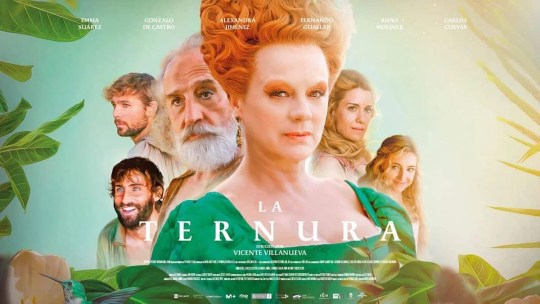
View On WordPress
0 notes
Text











#la señora#tve#rtve#2008#serie tv#tv series#season 1#hugo de viana#victoria marquez#adriana ugarte#marques de castro#gonzalo de castro#marquesa de castro
0 notes
Text
NOS se encuentra infiltrado por espacios de izquierda en Santa Fe
NOS se encuentra infiltrado por espacios de izquierda en Santa Fe
Se sabe desde todo un inicio que el espacio del héroe en la Guerra de las Islas Malvinas, Juan José Gómez Centurión, el reconocido NOS, está en pleno proceso por poder hacerse con una personería jurídica nacional. De cara a las elecciones del 2023, aún no ha podido hacerse fuerte o tener musculatura propia, más aún con el crecimiento de otras figuras de la derecha como son los economistas José…

View On WordPress
#Ciudad Futura#Gianfranco Giacometti#Gonzalo Nahuel Castro#Juan José Gómez Centurión#MLR#Moderados#Movimiento Libertario Republicano#NOS#Santa Fe#UCR#Unión Cívica Radical#Venado Tuerto#Walter Eiguren
1 note
·
View note
Text
2024 olympics Argentina roster
Archery
Mario Jajarabilla (Buenos Aires)
Athletics
Elián Larregina (Suipacha)
Nazareno Sasia (Cerrito)
Joaquín Gómez (Avallaneda)
Belén Casetta (Mar Del Plata)
Florencia Borelli (Mar Del Plata)
Daiana Ocampo (Buenos Aires)
Canoeing
Agustín Vernice (Bahia Blanca)
Brenda Rojas (San Martín De Los Andes)
Cycling
José Torres (Córdoba)
Eduardo Sepúlveda; Jr. (Rawson)
Gonzalo Molina (San Juan)
Equestrian
José Larocca; Jr. (Buenos Aires)
Fencing
Pascual Di Tella (Brooklyn, New York)
Field Hockey
Tomás Santiago (Córdoba)
Juan Catán (Buenos Aires)
Maico Casella (Buenos Aires)
Lucas Toscani (Buenos Aires)
Nicolás Della Torre (Buenos Aires)
Santiago Tarazona (Buenos Aires)
Federico Monja (Vicente López)
Tomas Domene (Córdoba)
Matías Rey (Buenos Aires)
Lucas Martínez (Buenos Aires)
Agustín Mazzilli (Lanús)
Tadeo Marcucci (Buenos Aires)
Thomas Habif (Buenos Aires)
Agustín Bugallo (San Juan)
Bautista Capurro (Buenos Aires)
Iñaki Minadeo (Buenos Aires)
Sofía Toccalino (Buenos Aires)
Agustina Gorzelany (Buenos Aires)
Valentina Raposo (Salta)
Agostino Alonso (Buenos Aires)
Agustina Albertarrio (Adrogué)
María Granatto (La Plata)
Cristina Cosentino (Buenos Aires)
Rocío Sánchez-Moccia (Buenos Aires)
Victoria Sauze (Buenos Aires)
Sofía Cairo (Buenos Aires)
María Trinchinetti (Victoria)
Lara Casas (Buenos Aires)
Juana Castellaro (Buenos Aires)
Pilar Campoy (Vicente López)
Julieta Jankunas (Córdoba)
Zoe Díaz (Buenos Aires)
Soccer
Fabricio Iacovich (La Plata)
Leandro Brey (Lomas De Zamora)
Rocco Ríos-Novo (Los Angeles, California)
Marco Di Cesare (Mendoza)
Valentín Barco (Veinticinco De Mayo)
Roberto García (Liniers)
Nicolás Valentini (Junín)
Aaron Quirós (Monte Grande)
Gonzalo Luján (Buenos Aires)
Lucas Esquivel (Santa Fe De La Vera Cruz)
Federico Redondo (Adrogué)
Cristian Medina (Moreno)
Thiago Almada (Ciudadela)
Claudio Echeverri (Resistencia)
Juan Sforza (Rosario)
Juan Nardoni (Nelson)
Ignacio Fernández (Buenos Aires)
Pablo Solari (Arizona)
Luciano Gondou (Rufino)
Abiel Osorio (Buenos Aires)
Francisco González (Ordóñez)
Santiago Castro (Ciudad Del Liberator General Don José De San Martín)
Golf
Emiliano Grillo (San Diego, California)
Alejandro Tosti (Gainesville, Florida)
Handball
Andrés Moyano (Mendoza)
Nicolás Bono (Buenos Aires)
Federico Fernández (Buenos Aires)
Federico Pizarro (Buenos Aires)
Pablo Vainstein (Buenos Aires)
Diego Simonet (Vicente López)
Pablo Simonet (Vicente López)
Ignacio Pizarro (Lanús)
Santiago Baronetto (Buenos Aires)
Lucas Moscariello (Buenos Aires)
Guillermo Fischer (Buenos Aires)
Pedro Martínez (Buenos Aires)
Gastón Mouriño (Buenos Aires)
James Parker; Jr. (Ciudad San Luis)
Leonel Maciel (Morón)
Nicolás Bonanno (Marcos Paz)
Juan Bar (Vicente López)
Judo
Sofia Fiora (Buenos Aires)
Pentathlon
Franco Serrano (Buenos Aires)
Rowing
Alejandro Colomino (Buenos Aires)
Pedro Dickson (Buenos Aires)
Sonia Baluzzo (Buenos Aires)
Evelyn Silvestro (Zárate)
Rugby
Tomás Elizalde (Buenos Aires)
Agustín Fraga (Buenos Aires)
Matteo Graziano (Buenos Aires)
Alejo Lavayén (Buenos Aires)
Joaquín Pellandini (Buenos Aires)
Tobías Wade (Buenos Aires)
Santiago Álvarez (Bahía Blanca)
Luciano González (La Rioja)
Santiago Mare (Buenos Aires)
Marcos Moneta (Buenos Aires)
Matías Osadczuk (Buenos Aires)
Germán Schulz (Córdoba)
Gastón Revol (Córdoba)
Sailing
Francisco Saubidet (Buenos Aires)
Mateo Majdalani (Buenos Aires)
Francisco Guaragna (Rufino)
Chiara Ferretti (Buenos Aires)
Catalina Turienzo (Buenos Aires)
Eugenia Bosco (Buenos Aires)
Lucía Falasca (Buenos Aires)
Shooting
Marcelo Gutiérrez (Buenos Aires)
Federico Gil (Buenos Aires)
Fernanda Russo (Córdoba)
Skateboarding
Matias Dell Olio (Mar Del Plata)
Mauro Iglesias (Buenos Aires)
Swimming
Ulises Saravia (Buenos Aires)
Agostina Hein (Buenos Aires)
Macarena Ceballos (Río Cuarto)
Table tennis
Santiago Lorenzo (Buenos Aires)
Taekwondo
Lucas Guzmán (Merlo)
Tennis
Sebastián Báez (Buenos Aires)
Francisco Cerúndolo (Buenos Aires)
Tomás Etcheverry (La Plata)
Mariano Navone (Nueve De Julio)
Máximo González (Tandil)
Andrés Malteni (Buenos Aires)
María Carlé (Tandil)
Nadia Podoroska (Alicante, Spain)
Triathlon
Romina Biagioli (Córdoba)
Volleyball
Pablo Kukartsev (Buenos Aires)
Matías Sánchez (San Juan)
Jan Martínez-Franchi (Vicente López)
Facundo Conte (Vicente López)
Agustín Loser (General Alvear)
Santiago Danani (Buenos Aires)
Bruno Lima (San Juan)
Luciano De Cecco (Santa Fe De La Vera Cruz)
Luciano Vicentín (Paraná)
Martín Ramos (Buenos Aires)
Luciano Palonsky (Buenos Aires)
Nicolás Zerba (Buenos Aires)
#Sports#National Teams#Argentina#Celebrities#Races#Boats#Animals#Fights#New York#Hockey#Soccer#Golf#Florida#Tennis#Spain
2 notes
·
View notes
Photo
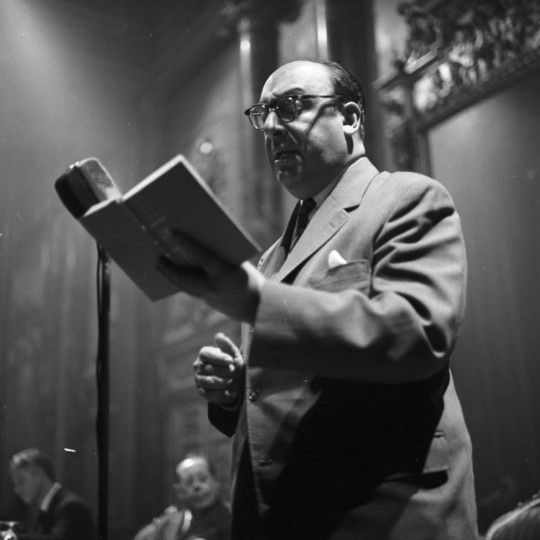
On 22 September 1973, Nobel laureate Pablo Neruda – whom Gabriel García Márquez dubbed "the greatest poet of the 20th century" – received some visitors at the Santa María hospital in Chile's capital Santiago. Among them were Sweden's ambassador Harald Edelstam and the Mexican ambassador Gonzalo Martínez Corbala, offering a plane to fly Neruda and his wife Matilde into exile.
We know about their conversation thanks to as yet unpublished documents at the National Archive in Sweden. Edelstam asserts he found the poet "very ill" though still willing to travel to Mexico. In a memo sent to his superiors, Edelstam observes: "In his last hours [Neruda] either didn't know or didn't recognise he suffered a terminal illness. He complained that rheumatism made it impossible to move his arms and legs. When we visited him, Neruda was preparing as best he could to travel … to Mexico. There, he would make a public declaration against the military regime."
That made the poet dangerous to some very powerful people, who had shown they would stop at nothing to defend their interests. They had ousted his friend, Salvador Allende, from the presidency less than a fortnight earlier. Allende died in a coup that was as much about silencing dissident voices as bringing about regime change. Another voice, that of popular singer Víctor Jara, was cut off four days later. Neruda remained. He was perhaps the loudest. His face certainly the most recognisable worldwide. He was too dangerous.
Members of the junta are on record expressing the view on the morning of September 22 that if Neruda flew into exile, his plane would fall into the sea. In the afternoon, radio stations under military control announced the poet would probably die in the next few hours, at a time when he was still awake in the hospital. The following day he was dead.
That historical mystery alone explains why his body was exhumed this week. But there are more pressing reasons too, at a time when the destiny of the left hangs in the balance in Latin America. The death of Venezuela's Hugo Chávez, one of many leftist leaders in the region to have fallen ill to cancer, has combined with the 700 documented assassination attempts against Cuba's Fidel Castro to fuel all manner of conspiracy theories.
More important still is the fact that, faced with an economic crisis without foreseeable end and few alternatives, a new generation of world activists needs to reconnect with the vibrant political imagination embodied by Neruda. The question is not merely whether the commitment he exemplified is possible now, but whether technology, and the institutions we use to manage it, can allow the kind of freedom Neruda called for in his poetry.
In this context, Neruda's life, as well as the shadows cast by his death, are Google-bombs waiting to be set off by a new generation of networked freedom fighters at the heart of our austerity-obsessed, repressive, and frankly boring narratives.
Neruda wasn't surprised by the 1973 coup – most people knew that the consequences of restoring "economic order" would be vicious, and many accepted it as necessary – but it wasn't inevitable: under a deal accepted by the government coalition as well as the opposition, President Allende was going to call for a referendum and would have resigned if the result went against him. This made any show of force by the smaller but influential sector within the Chilean armed forces unnecessary. But the conspirators were bent on regime change, so they brought forward the date of the coup, subjecting Chilean society to a trial by fire in order to cure it of a supposedly menacing communist "cancer".
The invocation of "cancer" to provide yesterday's rulers with a pretext to unleash war abroad and repression at home is mirrored by the questions being asked about Neruda's cancer today.
Neruda and the other individuals behind the Chilean revolution of the early 1970s made mistakes and were at least partially responsible for the consequences. But the real story behind their defeat and deaths hasn't been told yet. This is one of the reasons why people are looking to unearth new truths, hoping to shed some light on the origins of our problems today.
Through histories, testimonies, and documents declassified in the US or revealed as recently as last year by Wikileaks, we now know that the fate of Neruda and others like him had been decided long before they had any hand in mismanaging the economy or dividing political opinion. Persecution of the left had begun in Chile as early as 1948, at the behest of a US government awash with anti-communist paranoia.
That year, a controversial measure known as "the Damned Law" ("la ley maldita") outlawed the Chilean Communist Party, sent the communist leadership into exile and imprisoned hundreds of militants at the Pisagua camp under the orders of a young lieutenant named Augusto Pinochet – the concentration camp's director who would become Chile's dictator, and a friend and inspiration to Margaret Thatcher.
Neruda, radicalised like many others by the anti-fascist struggle of the 1930s and 40s, chose to flee the country. Fearing for his life he crossed the Andes on a horse, carrying with him the manuscript of his epic poem Canto General, before resurfacing in Mexico thanks to the help of his friends Pablo Picasso and Diego Rivera.
His second exile would have been in 1973. Edelstam's conversation with Neruda took place a mere two hours before the poet went to sleep, never to wake up again. When the Swedish diplomat went to Neruda's house to offer his condolences, he found it destroyed. Pinochet's men were bent on erasing every trace of his existence. They would do the same with thousands of people during a reign of terror that would last for nearly two decades. That is why so many people this week are holding their breath to find out what clues Neruda's exhumed body might hold.
One of the most enduring mysteries in modern Chilean history may finally have been solved after forensic experts determined that the Nobel prize-winning Chilean poet Pablo Neruda died after being poisoned with a powerful toxin, apparently confirming decades of suspicions that he was murdered.
According to the official version, Neruda – who made his name as a young poet with the collection Twenty Poems of Love and a Song of Despair – died from prostate cancer and malnutrition on 23 September 1973, just 12 days after the military coup that overthrew the democratically elected socialist government of his friend, President Salvador Allende.
But some, including Neruda’s nephew, Rodolfo Reyes, have long believed he was murdered because of his opposition to the then incipient dictatorship of Augusto Pinochet.
Ten years ago, a Chilean judge ordered the exhumation of the poet’s remains after his former chauffeur, Manuel Araya, revealed that an agitated Neruda had called him from the Santiago hospital where he was being treated to say that he had been injected in the stomach while asleep. The poet died hours later.
Samples of Neruda’s remains were dispatched to forensic laboratories in four countries for analysis, and in 2015 the Chilean government said it was “highly probable that a third party” was responsible for his death. Two years later, a team of international scientists said they were “100% convinced” the poet did not die from prostate cancer.
On Monday, Reyes said scientific tests had shown the toxin clostridium botulinum was present in his uncle’s body when he died, suggesting he was indeed “poisoned” in the aftermath of the coup. The results of expert analysis are due to be published in a report on Wednesday.
“We now know that there was no reason for the clostridium botulinum to have been there in his bones,” Reyes told the Spanish news agency Efe. “What does that mean? It means Neruda was murdered through the intervention of state agents in 1973.”
The bacteria, which produce the neurotoxin that causes botulism, were discovered on one of Neruda’s exhumed teeth in 2017. Reyes said analysis by experts at McMaster University in Canada and the University of Copenhagen had established the bacteria did not find their way into Neruda’s body from the coffin or the surrounding area.
“We’ve found the bullet that killed Neruda, and it was in his body,” Reyes told Efe. “Who fired it? We’ll find out soon, but there’s no doubt Neruda was killed through the direct intervention of a third party.”
Pinochet’s US-backed coup, during which Allende killed himself as troops stormed the presidential palace, devastated Neruda and led him to plan an exile in Mexico.
But a day before his planned departure, he was taken by ambulance to the hospital in the Chilean capital where he had been treated for cancer and other conditions. He died there on the evening of 23 September, purportedly from the wasting effects of the prostate cancer that had first been detected four years earlier.
However, the official version of the events surrounding his death has frequently been called into question. Gonzalo Martínez Corbalá, who was Mexico’s ambassador to Chile at the time of the coup, told the Associated Press he had seen Neruda two days before his death, and that the poet had weighed almost 100kg (15st 10lbs) – contradicting claims that he was fatally malnourished because of his cancer.
Last month, Araya told AP that if Neruda “hadn’t been left alone in the clinic, they wouldn’t have killed him”.
The chauffeur said he and Neruda’s wife, Matilde Urrutia, had been at the couple’s mansion to pick up their suitcases for Mexico when the poet rang, asking them to come back to the hospital quickly. Neruda died later the same day.
Following Neruda’s death Urrutia maintained that he had been increasingly agitated as he learned of the early atrocities of the dictatorship and that it was the anguish of the coup d’état which led to his demise.
The lengthy investigation hit a number of obstacles, from non-cooperation on the part of the clinic where the alleged injection was administered to difficulty in funding foreign lab tests.
In the years after Neruda’s death, much of the focus has been on locating a mysterious “Dr Price” who had apparently been on duty at the clinic that night. However, there was no mention of the doctor in the records of Chile’s medical union, and it was eventually deduced that he had been invented to stall investigations.
Though described by his friend Gabriel García Márquez as “the greatest poet of the 20th century in any language”, Neruda’s reputation has been damaged in recent years by details of his personal life. Not only was the writer a self-confessed rapist, he was also a man who abandoned his first wife and their daughter, Malva Marina, who was born with a neurological disorder and died at the age of nine.
In his posthumously published memoirs, Confieso Que He Vivido (I Confess That I Have Lived), Neruda admitted raping a Tamil woman who worked as his servant when he was posted to Ceylon as a young diplomat. After describing the rape, he wrote: “She was right to despise me.”
The rape confession, which resurfaced almost five years ago, led human rights activists to oppose an attempt to rename Santiago airport in honour of the poet.
Speaking at the time, the author and women’s rights campaigner Isabel Allende told the Guardian that Neruda’s criminal and callous behaviour did not devalue his work.
“I am disgusted by some aspects of Neruda’s life and personality,” she said. “However, we cannot dismiss his writing. Very few people – especially powerful or influential men – behave admirably. Unfortunately, Neruda was a flawed person, as we all are in one way or another.”
Daily inspiration. Discover more photos at http://justforbooks.tumblr.com
20 notes
·
View notes
Photo

Gonzalo Fuenmayor & Marcos Castro - Apocalyptic Nostalgias #5, 2022
45 notes
·
View notes
Text
END OF THE YEAR LIST
due to my memory problems (thank you mental illness <3), i decided early in the year to document all sorts of stuff i do in the year, most of them media related. we've now reached the end of 2022, so i'll be writing down here the stuff in order that i've watched / read / listened to this year, even if no one cares lol. also, i'll be boldening my favourite(s) x of the year (i'll only take into consideration for it stuff i first discovered this year cause it'd be unfair any other way), and adding the date i consumed each thing when i remembered to write it down. anyways, hope you like it :)
MOVIES:
the muppets: a christmas carol (01/01)
sing! 2 (08/01) -> in the cinema
emperor's new clothes (18/01)
tick, tick... boom! (22/01)
lady bird (06/02)
digimon: the movie (13/03) REWATCH
west side story 2021 (02/04)
turning red (10/04)
legally blonde (14/06)
doctor strange in the multiverse of madness (22/07)
lightyear (03/09)
blonde (01/10)
elvis (16/10)
enola holmes 2 (11/11)
the mitchells vs the machines (03/12)
dead poets society (09/12) REWATCH
strange world (25/12)
BOOKS:
mistborn: the hero of ages, by brandon sanderson (11/01)
wilder mann. the image of the savage, by charles fréger (17/01)
the song of achilles, by madeline miller (14/02)
hamlet, by william shakespeare (29/03)
sub luce maligna, by gonzalo fontana elboj (01/06)
legends, tales and poems, by gustavo adolfo bécquer (11/07)
mitología ibérica. cuentos y consejas de la vieja españa, by constantino cabal
algunos mitos españoles, by julio caro baroja
mistborn: the alloy of law, by brandon sanderson
mistborn: shadows of self, by brandon sanderson
TV SHOWS:
bridgerton s2 (17/04)
bridgerton s1 (24/04)
bridgerton s2 (26/04) REWATCH
derry girls s1 (04/05) REWATCH
derry girls s2 (06/05) REWATCH
derry girls s3 (18/05)
stranger things s4 vol. I (08/06)
stranger things s4 vol. II (03/07)
spy x family s1 (04/07)
fleabag s1 (01/08) REWATCH
fleabag s2 (04/08) REWATCH
abbott elementary s1 (17/09)
derry girls s1 & s2 (23/10) REWATCH
derry girls s3 (24/10) REWATCH
wednesday s1 (05/12)
the sex lives of college girls s1 (08/12)
fleabag s1 (13/12) REWATCH
fleabag s2 (17/12) REWATCH
the sex lives of college girls s2 (19/12)
CONCERTS:
conan gray (21/05)
madcool 2022 (06/07) -> creeper, yungblud, alfie templeman, metallica, & twenty one pilots
joaquín sabina tribute group (20/08)
sum 41 and simple plan (28/09)
ginebras (29/10)
VIDEOGAMES:
growing up (PC)
medieval dynasty (PC)
the life and suffering of sir brante (PC)
dorf romantik (PC)
legend of the keepers (PC)
tile cities (PC)
festival tycoon (PC)
pro cycling manager 2021 (PC)
pokémon legends arceus (Switch)
rune factory 5 (Switch)
voice of cards: the isle dragon roars (Switch)
mario kart 8 deluxe DLC (Switch)
immortal life (PC, 02/07)
digimon survive (Switch, 31/07)
evoland (Switch, 31/08)
patron (PC, 03/09)
my time at portia (PC, 04/09)
travellers rest (PC, 05/09)
youtubers life 2 (PC, 16/11)
the manga works (PC, 16/11)
pokémon scarlet (Switch, 21/11)
sky haven (PC, 25/12)
mount and blade II (PC, 27/12)
SONGS (this one is just lifted from my spotify wrapped):
mon amour - remix, by zzoilo ft aitana
yamaguchi, by amaia
raffaella, by varry brava
la típica canción, by ginebras
in a crowd of thousands, from anastasia
aura, by alba reche
el fin del mundo, by la la love you ft axolotes mexicanos
yo invito, by amaia
cuestión de suerte, by natalia lacunza
all too well (10 minutes version) (taylor's version) (from the vault), by taylor swift
guerrera, by valeria castro
sin miedo a nada, by alex ubago ft amaia montero
quiero pero no, by amaia ft rojuu
ay mamá, by rigoberta bandini
till forever falls apart, by ashe ft finneas
mándame un audio - remix, by fresquito & mango ft aitana
nuestro nombre, by natalia lacunza
vuelvo a verte, by malú ft pablo alborán
demasiadas mujeres, by c tangana
looking up, by paramore
#2022#i'm thinking of adding new stuff for next year#like trips#and musicals (not that i go to many but still)#oh and i'm thinking of writing down which songs i listen to the most each month#that could be fun as well#anyways hope you like it :)#and i know i need to consume more media#life i guess#also most of the games listed here i only played once 😶 i gotta cut that habit
5 notes
·
View notes
Text
The Spanish Love Deception fancast
Directed by James Foley
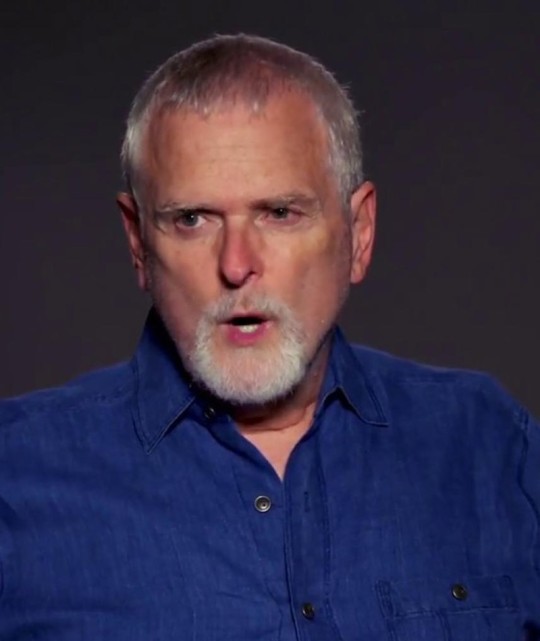
Produced by Dana Brunetti
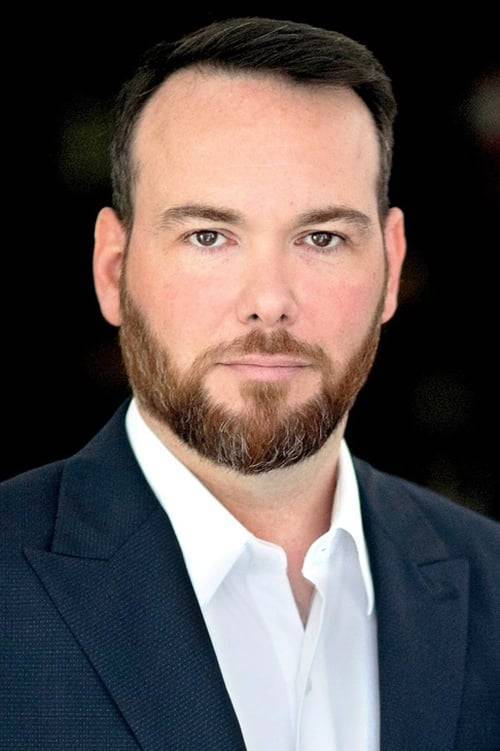
and Marcus Viscidi
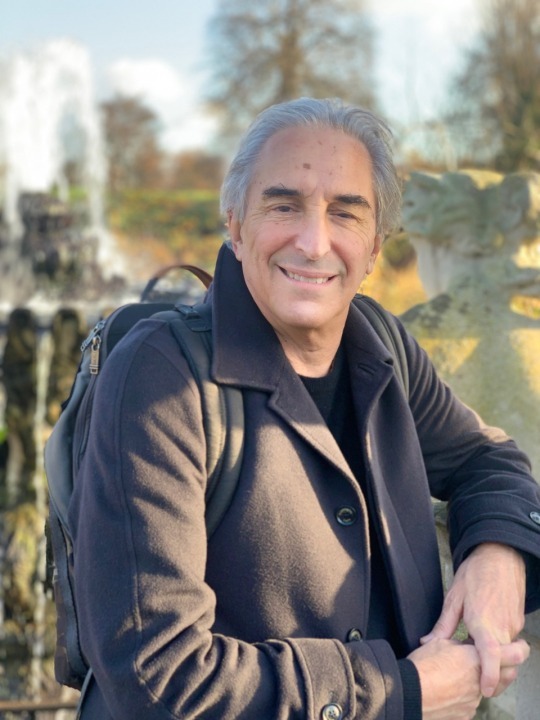
Produced and written by Elena Armas

Written by Jon Bokenkamp

Edited by John Schwartzman

Cinematography by Richard Francis-Bruce

Music by Danny Elfman

For the production companies, there would be

and

Distributed by

Henry Cavill as Aaron Blackford

Ana de Armas as Catalina Martin

Zoey Deutch as Rosalyn Graham

Michele Morrone as Daniel

Diana Gómez as Charo Martin

Paz Vega as Juani Martin
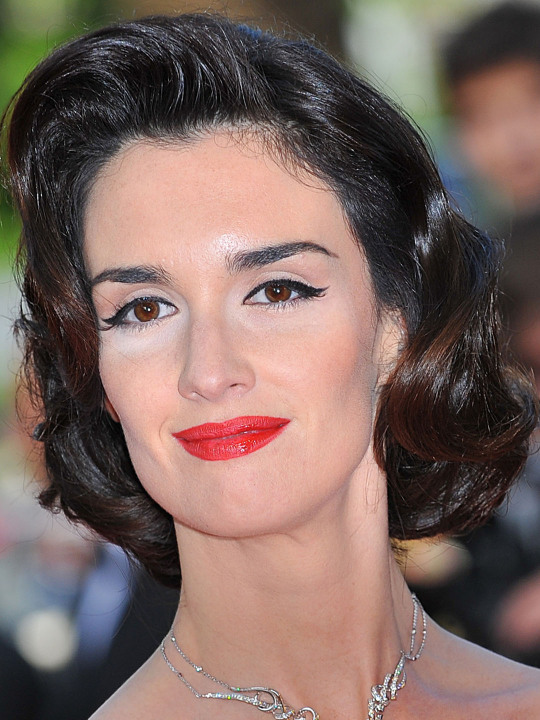
Alba Flores as Isabela Martin

Álvaro Morte as Manuel Martin

Dev Patel as Kabir Pokrehl
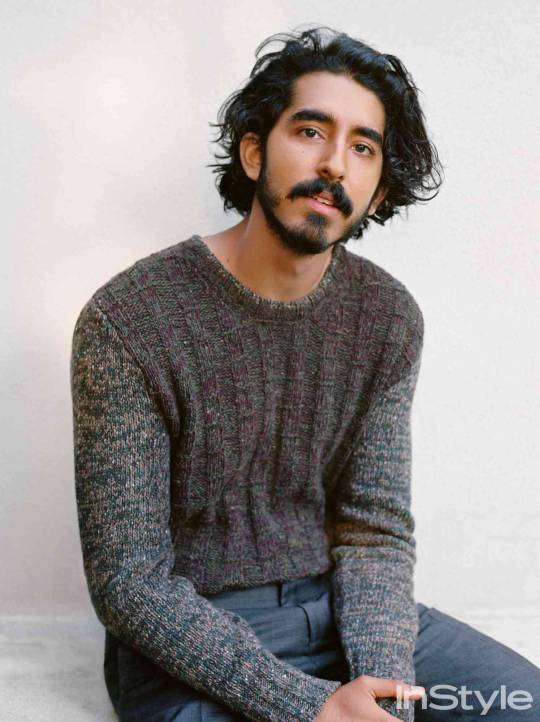
Michael B. Jordan as Tyrod James

Hugh Jackman as my choice #1 for Jeff Foster

Leonardo DiCaprio as my choice #2 for Jeff Foster

Antonio Banderas as Hector Diaz
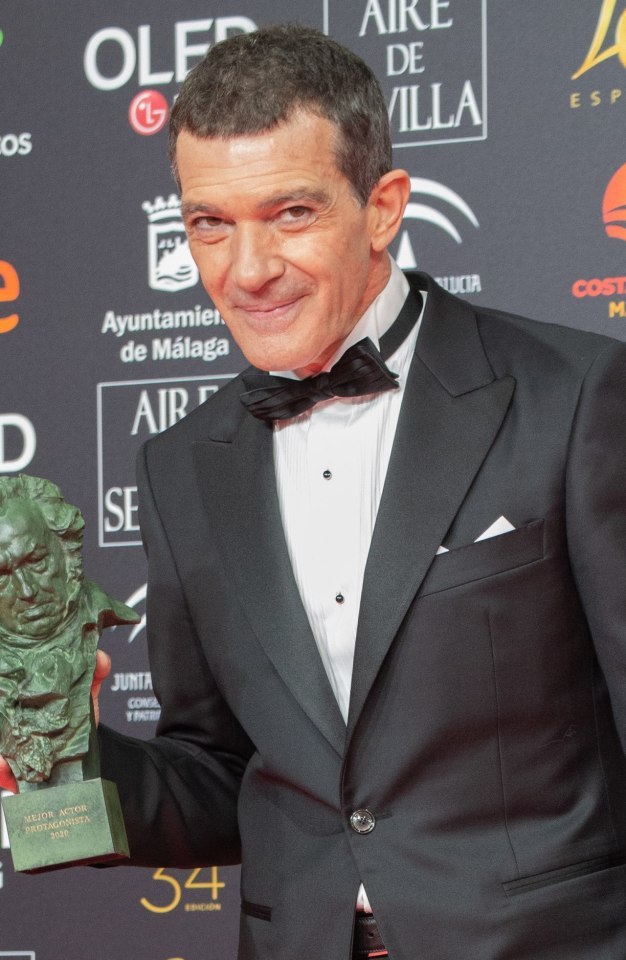
Robert De Niro as Gerald Simmons

Helena Bonham Carter as Mrs. Archiebald
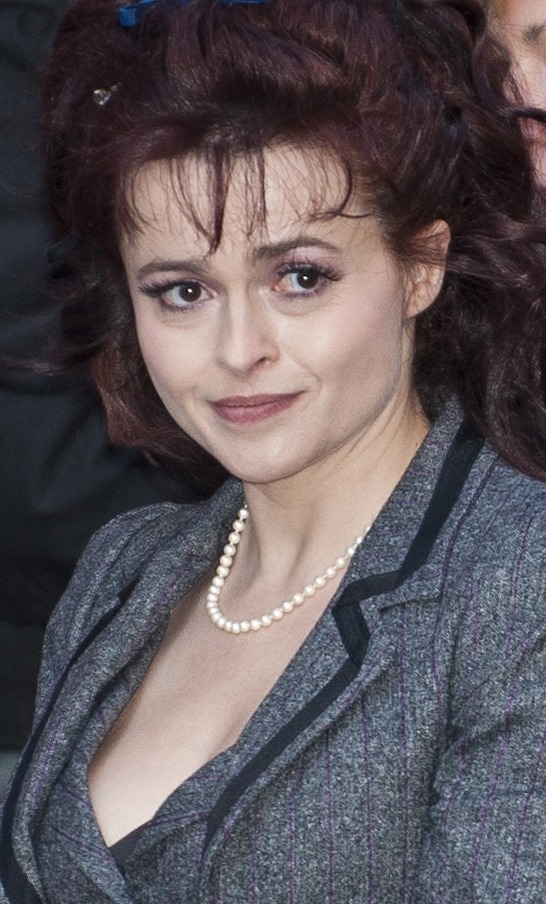
Kim Basinger as Julie Andrews

Monica Bellucci as Tía Carmen
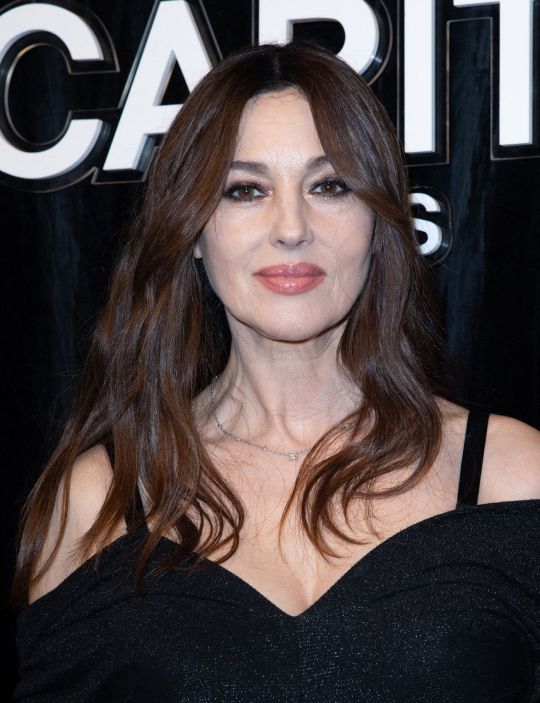
Jesús Castro as Gonzalo
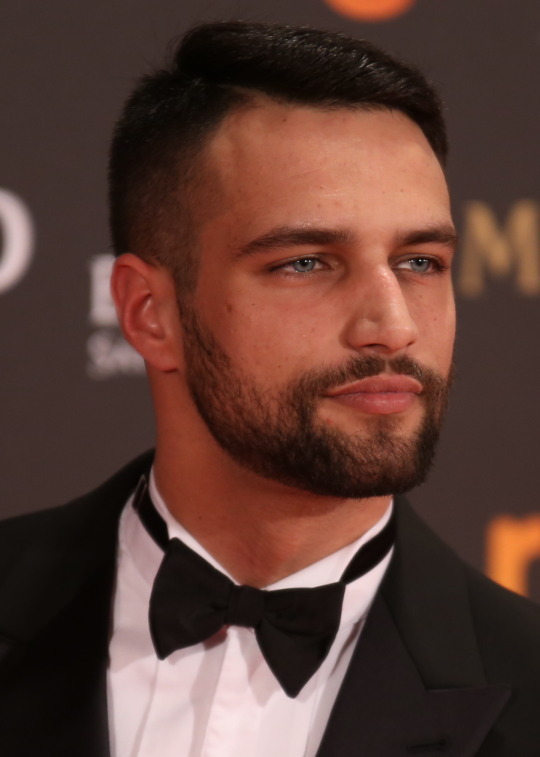
#fancast#henry cavill#universal#ana de armas#aaron blackford#catalina martin#the spanish love deception#romance#hugh jackman#leonardo dicaprio#zoey deutch#paz vega#michele morrone#alba flores#dev patel#michael b. jordan#antonio banderas#robert de niro#helena bonham carter#kim basinger#monica bellucci#jesus castro
6 notes
·
View notes
Text

Marcos Castro (Mexican, 1981) - Apocalyptic Nostalgias #1 (in collaboration with Gonzalo Fuenmayor) (2022)
80 notes
·
View notes
Text









Ilustrei estes retratos de mariños para a exposición "Terra de Exploradores" enmarcada dentro das actividades do proxecto Exploraterra e xestionada por Trivium, que amosan a relación de Galicia coas expedicións marítimas dos séculos XVI ao XVII.
Cristovo Colón.
Isabel Barreto de Castro.
Gonzalo de Vigo.
Gómez Pérez das Mariñas.
Estevão Gomes.
Bartolomé e Gonzalo García de Nodal.
#ilustracions#illustration#historical illustration#galicia#galiza#mar#sea#ship#boat#desenho#history#16th century#17th century
2 notes
·
View notes
Text

#ProyeccionDeVida
🎥 Cine Arte San Marcos. Quinqui, presenta:
🎬 “NAVAJEROS”
🔎 Género: Drama / Crimen / Cine Quinqui / Pandillas Callejeras / Basado en hechos reales
⌛️ Duración: 92 minutos
✍️ Guión: Eloy de la Iglesia y Gonzalo Goicoechea
🎵Música: Burning
📷 Fotografía: Antonio Cuevas

💥 Argumento: José Manuel Gómez Perales, alias “El Jaro”, vive en Madrid con su banda y sus novias. Un día conoce a una prostituta de origen mexicano que se enamora de él y le ofrece su casa para apartarlo del mundo de la delincuencia. Jaro acepta el refugio, pero sigue dando golpes con su banda. Un día conoce a una adolescente drogadicta y se enamora de ella.
👥 Reparto: José Luis Manzano (El Jaro), José Luis Fernández Eguia (El Nene), Isela Vega (Mercedes), Enrique San Francisco (El Marqués), Verónica Castro (Toñi), José Sacristán (Periodista), Jaime Garza (El Butano), María Martín (Madre de El Jaro), José Manuel Cervino (Lara), Manuel Calvo y Ramón Reparaz (Comisario).
📢 Dirección: Eloy de la Iglesia
© Productoras: Acuarius Films, Figaró Films & Producciones Fénix
🌎 Países: España-México
📅 Año: 1980

📽 PROYECCIÓN:
📆 Jueves 20 de Junio
🕡 6:30pm.
🏛 Auditorio del Centro Cultural de San Marcos (av. Nicolás de Piérola 1222, Parque Universitario – Lima)

🎤 Conversatorio: “Análisis del Largometraje”.
⭐ Organiza: Dirección de Cine y Producción Audiovisual de San Marcos (DCPA)
🚶♀️🚶♂️ Ingreso libre
1 note
·
View note
Text
Por: Luis Britto García* | Sábado, 11/05/2024 04:57 PM
A lo largo de nuestra Historia, caudillos y candidatos que llegan al poder presentan una veintena de rasgos comunes. Si quiere saber quién será el próximo Presidente, verifique cuántos de ellos suman los diversos presidenciables, incluido usted mismo.
RASGOS PERSONALES
Verifique el lector los cinco primeros rasgos, relativos a la propia persona del caudillo:
1.- Personalismo
En Venezuela el Poder se ejerce por encima de toda norma o principio. Leyes de Indias, Constitución o Estatutos partidistas se acatan, pero no se cumplen. Los andinos llegan a Miraflores a caballo en 1899. Los adecos, en tanque, en 1945. Pérez pasa por encima de la Carta Fundamental, del Partido, del Congreso, del Poder judicial y del Pueblo, para imponer en 1989 la voluntad de Michael Camdessus, Presidente del Fondo Monetario Internacional. Hugo Chávez arriesga su vida para combatirla. Caldera comienza creando un partido para ser candidato y termina siendo candidato sin partido.
2.- Protección por las Fuerzas Invisibles
El hombre del pueblo cree en un orden inmanente del mundo, que legitima a sus favoritos confiriéndoles buena suerte o poderes sobrenaturales. Páez es salvado del fusilamiento por un “Ejército de las Animas”. Gómez es “El Brujo de La Mulera”. Betancourt tiene pipa ensalmada, que lo salva de un atentado dinamitero. Luis Herrera tiene pepa de zamuro, que no lo salva de nada. Lusinchi le lleva perlas a la Virgen del Valle: está de su lado el numerólogo Shápiro, quien predice su triunfo; en contra, el astrólogo Alfa D.K., quien muere de inmediato.. A Chávez lo protegen el ánima de Taguapire y el escapulario de Maisanta.
Mucho menos eficaz es la protección de hechiceros con título, que siempre conducen a la ruina. El Brujo de Pipe no pudo lograr la reelección de Pérez Jiménez, ni el Ministro de la Inteligencia la de los copeyanos, ni los técnicos copeyanos la de Oswaldo. La tutoría de los Iesa Boys hunde a Carlos Andrés Pérez. Es que son muy pavosos.
3.- Resistencia física
Las Fuerzas Invisibles legitiman biológicamente a su favorito, confiriéndole lo que es, para el hombre del pueblo, la manifestación más visible del poder: la resistencia física. Páez, José Gregorio Monagas, Crespo, son Supermanes en alpargatas. Gómez amenaza con no morir nunca (como en efecto). Betancourt es inmune a la dinamita. Pérez camina, para donde le ordena Michael Camdessus. Hugo Chávez es atleta infatigable, amansa potros, es el mejor pitcher del equipo y excelente primera base. Caldera resiste hasta los discursos de Pedro Grases, y demuestra su idoneidad presidencial nadando dos kilómetros al estilo Mao en un club del litoral.
4.- Machismo
Favorito de las Fuerzas Invisibles, el caudillo ha de serlo también de los Poderes Visibles: es decir, las mujeres. Una procesión de damas despide al anciano Páez que parte al exilio. Castro tiene satiriasis; Gómez, cien hijos naturales; Pérez Jiménez persigue misses en motoneta; Wolfgang Larrazábal es acosado por viejitas besadoras; Betancourt encuentra en las damas “el reposo del guerrero”; Gonzalo Barrios sufre aparatosa derrota electoral por misógino; Lusinchi adora a la barragana; Pérez es amado por Michael Camdessus. La foto de Hugo Chávez causa conmoción. La revista Exceso ayuda poderosamente a la santurrona imagen de Rafael Caldera ventilando una historia sobre un presunto amorío con hija no reconocida y todo.
5.- Astucia
Las Fuerzas Invisibles legitiman intelectualmente a su favorito confiriéndole la “viveza”. Para ser “vivo” no es necesario saber leer. El “vivo” enreda a los “doctores”. Ser culto, o reconocer que se lo es, perjudica. Páez y Gómez se crean minuciosamente falsas reputaciones de iletrados. Betancourt afirma que “no se necesita ser doctor para ser un buen presidente de la República. No fue doctor Rómulo Gallegos, no soy yo doctor, no es doctor Carlos Andrés Pérez. Y Piñerúa, sin ser doctor, va a desempeñar, con eficacia y sen...

View On WordPress
0 notes
Text
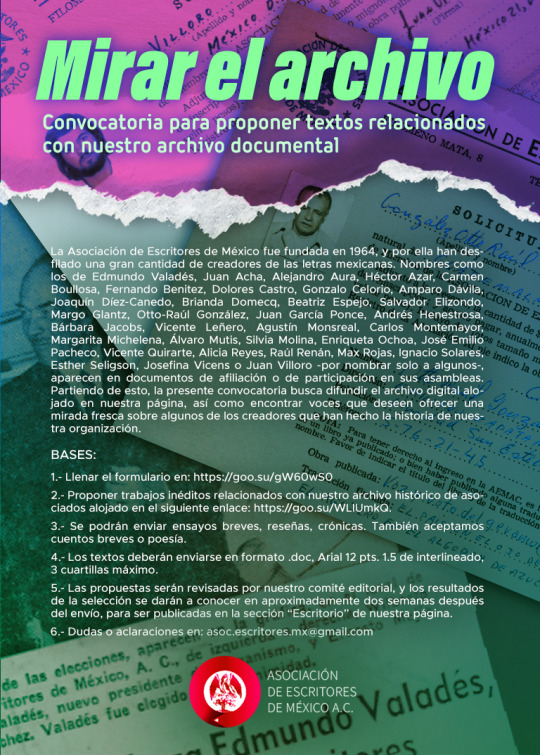
Creación y curaduría de la convocatoria «Mirar el archivo»
"La Asociación de Escritores de México fue fundada en 1964, y por ella han desfilado una gran cantidad de creadores de las letras mexicanas. Nombres como los de Edmundo Valadés, Juan Acha, Alejandro Aura, Héctor Azar, Carmen Boullosa, Fernando Benitez, Dolores Castro, Gonzalo Celorio, Amparo Dávila, Joaquín Díez-Canedo, Brianda Domecq, Beatriz Espejo, Salvador Elizondo, Margo Glantz, Otto-Raúl González, Juan García Ponce, Andrés Henestrosa, Bárbara Jacobs, Vicente Leñero, Agustín Monsreal, Carlos Montemayor, Margarita Michelena, Álvaro Mutis, Silvia Molina, Enriqueta Ochoa, José Emilio Pacheco, Vicente Quirarte, Alicia Reyes, Raúl Renán, Max Rojas, Ignacio Solares, Esther Seligson, Josefina Vicens o Juan Villoro -por nombrar solo a algunos-, aparecen en documentos de afiliación o de participación en sus asambleas. Partiendo de esto, la presente convocatoria busca difundir el archivo digital alojado en nuestra página, así como encontrar voces que deseen ofrecer una mirada fresca sobre algunos de los creadores que han hecho la historia de nuestra organización."
0 notes